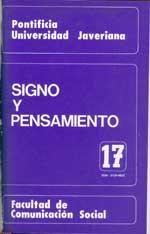Abstract
Cortázar reconoce la estrategia de olvido y adiciona la de efecto sedante: ve cómo en el memento en que las informaciones se multiplican sobre la posible invasión de Estados Unidos a Nicaragua, los espectadores europeos se mantienen más sordos y más indiferentes que nunca. “A esa hora”, escribe, en la que cualquier lector o telespectador recibe el máximo de información sobre lo que sucede en ese lejano país, la indiferencia y la pasividad se hacen sentir más que nunca, como el diario y decide olvidarse de lo que sucede. si la gente no tuviera idea de la que sucede. El hombre medio pliega el diario y decide olvidarse de lo que sucede. Diría inclusive que es inducido al olvido porque otras informaciones, otras trivialidades, harán que olvide lo que acaban de leer. El hombre medio soluciona con el diario y la televisión su angustiosa necesidad de olvido. Alimenta su superstición como diría Eudoro Acevedo; nuestro representante ante el siglo XXIII en “Utopía de un hombre que está cansado”: “en mi curioso ayer prevalencia la superstición de que entre cada tarde y cada mañana ocurren cosas que es una vergüenza ignorar”. Ante la presión de esta vergüenza conoce con precisión los más íntimos detalles sobre el último congreso de pedagogos o la inminente ruptura de relaciones y los mensajes que los presidentes mandan elaboradas por el secretario del secretario, pero desconoce no distinguir demasiado entre un noticiero y una película de ficción, o prefiere esta última por ser más realista, porque lo hace más rico ante su pobreza de experiencia.This journal is registered under a Creative Commons Attribution 4.0 International Public License. Thus, this work may be reproduced, distributed, and publicly shared in digital format, as long as the names of the authors and Pontificia Universidad Javeriana are acknowledged. Others are allowed to quote, adapt, transform, auto-archive, republish, and create based on this material, for any purpose (even commercial ones), provided the authorship is duly acknowledged, a link to the original work is provided, and it is specified if changes have been made. Pontificia Universidad Javeriana does not hold the rights of published works and the authors are solely responsible for the contents of their works; they keep the moral, intellectual, privacy, and publicity rights.
Approving the intervention of the work (review, copy-editing, translation, layout) and the following outreach, are granted through an use license and not through an assignment of rights. This means the journal and Pontificia Universidad Javeriana cannot be held responsible for any ethical malpractice by the authors. As a consequence of the protection granted by the use license, the journal is not required to publish recantations or modify information already published, unless the errata stems from the editorial management process. Publishing contents in this journal does not generate royalties for contributors.


